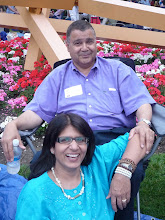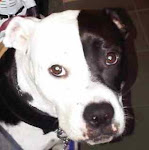Walking into a foreign hospital or medical office held an indescribable fear. Will I be able to describe my symptoms without misunderstanding and how will the doctors explain the diagnosis and treatment to me?
For at routine conversations at my small rural municipality I am troubled by the translations, as they tend to be a summary of what is being said, without the complexities of a carefully chosen word, the intonation and inflections by which the discussion is enriched or a complex problem of developing a program or strategy is achieved. These subtleties are what translators of great literature strive to achieve over the course of a lifetime, or even the simultaneous translators at world institutions when they translate books or political discourse respectively. Work thus progresses at a snails pace because neither side truly understands how to explain the sub-context of a jointly developed sustainable program. This personal experience is what made me somewhat anxious for the therapy at a local hospital.
So I walk into the entrance hall of the hospital in Prilep, only to see a woman, nonchalantly carrying a pistol in one hand as she walked past me out through the entrance doors. I had no time to react or even see if there was a place to hide or run to if bedlam broke out. It didn’t. Phew! I had already called the english-speaking intern? resident? staff? who was to meet me and not only take me to take me to the doctor’s office but also act as my translator. He was surprised when I told him what I saw and then claimed it must have been security. Well she sure didn’t wear any identifying clothes and gun safely tucked in a holster!
I followed meekly as he led me through a typical labyrinth of corridors all hospitals seem to have, some unlit and some lit till we arrived at a small office, where I did not receive a standard orthopedic examination of my knee. The doctor had me sitting while she did a cursory examination and wrote out a series of exercises in a hospital card. She obviously had spoken to my PCMO and spoke no English, so she did not explain the details of the therapy before taking me to the physical therapy unit. My translator then left. I knew I could call the PCMO anytime, so I did not pepper her with questions.
The physical therapy unit was located in a building adjacent to the hospital. There is no private room in this unit. The six cubicles curtained off, but each contained one or two beds, one or two machines stacked on top of each other and two people sitting on each bed which wires strapped on different parts of their bodies receiving therapy. There was no changing of the linen or use of paper to prevent spread of infection when patients were moved from station to station, which involved uncovering legs, hands, shoulders and lower back in some cases. I would pull up my skirt or loose pants up to my thigh to enable the placing of the electrodes and bury my head in the books I took everyday. The sponge like pads holding the electrodes were washed (whether in cold water or a germicide, I had no clue) before being placed on (1) either side of my leg just above the knee, (2) either side above and below and (3) either side of my knee at three different stations that were on y card and a current set in a series of strengths and pulsating bursts. After this treatment I lay on a bed for 30 minutes (without change of sheets – so coming early to be the first is what I aimed for) with my legs in a magnetic ring. Often falling asleep during this cycle as reading a book was extremely difficult holding it straight up!
The electrical –magnetic treatment was followed by physical manipulation to strengthen my hamstrings in a room with was filled during the 9 days I was there with children undergoing exercises for their scoliosis treatment. I must say that the therapy was real effective and I felt no pain or swelling during my two-week follow-up exam with my PCMO. I still have discomfort as the minor arthritis in my knee has been aggravated and as it was a preexisting condition Washington PCMO refuses to approve further treatment as suggested by the local PCMO.
Tuesday, July 27, 2010
Subscribe to:
Posts (Atom)



